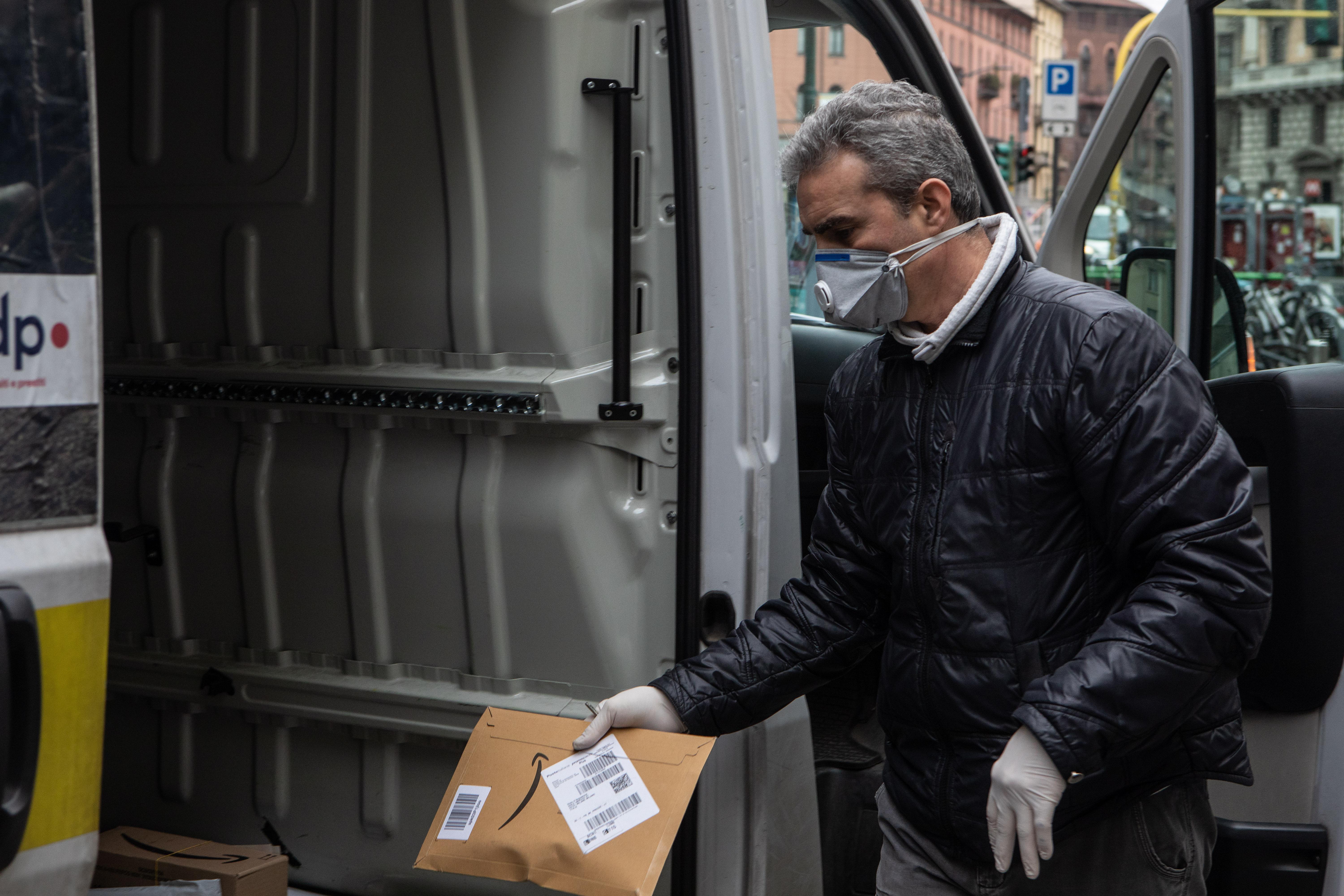According to an email obtained by Publisher’s Weekly, on Tuesday, Amazon told third-party sellers that in an attempt to fulfill unprecedented demand that products other than “household staples, medical supplies and other high-demand products” would be deprioritized. As more cities resort to drastic shelter-in-place measures and photos of empty grocery store aisles circulate on the internet, the giant e-tailer has stepped in to fill the gaps, but even it’s straining under the weight of an unprepared country. Many listings for items like hand sanitizer and toilet paper showed that they were out of stock or that delivery would be delayed by several days. For a company whose reputation is partially built on speedy one- or two-day delivery, these delays and outages mark a rare disruption in service.
On Monday, Amazon announced that it’d be hiring 100,000 additional warehouse and delivery workers to keep up with demand, but in the meantime, third-party products that don’t fall into six prioritized categories—baby products, health and household, beauty and personal care, grocery, industrial and scientific, and pet supplies—won’t be accepted at Amazon fulfillment centers until April 5. One of the industries that will most likely be hardest hit is one that was reluctant to capitulate to the dominance of Amazon in the first place: the publishing industry. According to Wired, Amazon is “the most dominant force in American bookselling today, accounting for over 90 percent of ebooks and audiobooks, and around 42 to 45 percent of print sales.”
Under this near-monopoly, indie shops have been squeezed out of the market. While e-book and audiobook readers are unlikely to be affected by this move, people who are quarantined or socially distanced who were looking to catch up on their reading are out of luck if they were anticipating two-day delivery of their copy of World War Z. But if you’re in a position to be able to wait for a book—which you should be if you’re practicing social distancing—then consider buying from your local independent bookseller. As Laurie Swift Raisys, owner of Island Books on Mercer Island, told me last week, the pandemic has heavily affected her business since most of her sales are in-person. But her shop, like most independent bookstores, does offer online shipping even if their stores are closed to the public. It probably won’t be free (though Island Books’ is) and your book probably won’t come in two days, but it could be the difference between your local bookstore reopening when social distancing measures are no longer necessary and Amazon—with all its morally questionable labor practices—truly being the only option left.
